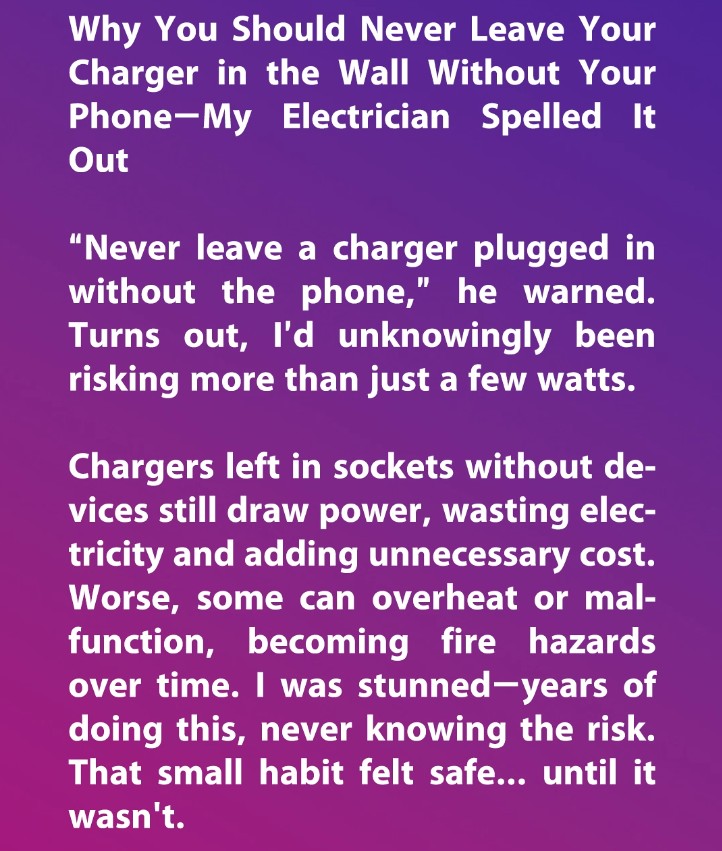It’s a habit most of us don’t think twice about—yanking our phone off the charger and leaving the plug in the wall. But according to electricians and safety experts, this seemingly harmless act carries hidden risks that can quietly impact your wallet, your home’s safety, and even the environment.
🔌 Phantom Power Drain Even when not charging a device, your charger continues to draw electricity—a phenomenon known as “vampire energy.” While the power usage is minimal per charger, multiply that across several devices and over time, it adds up. Unplugging unused chargers is a simple way to cut down on unnecessary energy consumption and lower your electricity bill.
🔥 Fire Hazards from Cheap Chargers Not all chargers are created equal. Low-quality or uncertified chargers often lack proper heat regulation. Left plugged in for long periods, they can overheat, especially in older outlets or crowded power strips. This increases the risk of electrical fires, particularly if the charger is damaged or frayed.
⚠️ Wear and Tear Chargers aren’t built to last forever. Constant exposure to electricity—even when idle—can degrade internal components. Over time, this reduces their efficiency and lifespan. Plus, frequent plugging and unplugging can wear out your wall outlets, leading to loose connections or sparks.
🌍 Environmental Impact Every bit of wasted electricity contributes to a larger carbon footprint. Leaving chargers plugged in unnecessarily increases demand on power plants, which in turn affects global energy consumption and pollution levels. Small habits, when multiplied across millions of households, have a big impact.
👶 Safety Around Children and Pets Exposed cords can be tempting for curious toddlers or pets. Chewing or playing with plugged-in chargers poses risks of electric shock or burns. Unplugging chargers when not in use is a simple way to childproof your space and avoid accidents.
✅ Smart Prevention Tips
- Always unplug chargers when not in use
- Use certified, high-quality chargers
- Inspect cords regularly for damage
- Avoid overloading power strips
- Consider surge protectors for added safety



